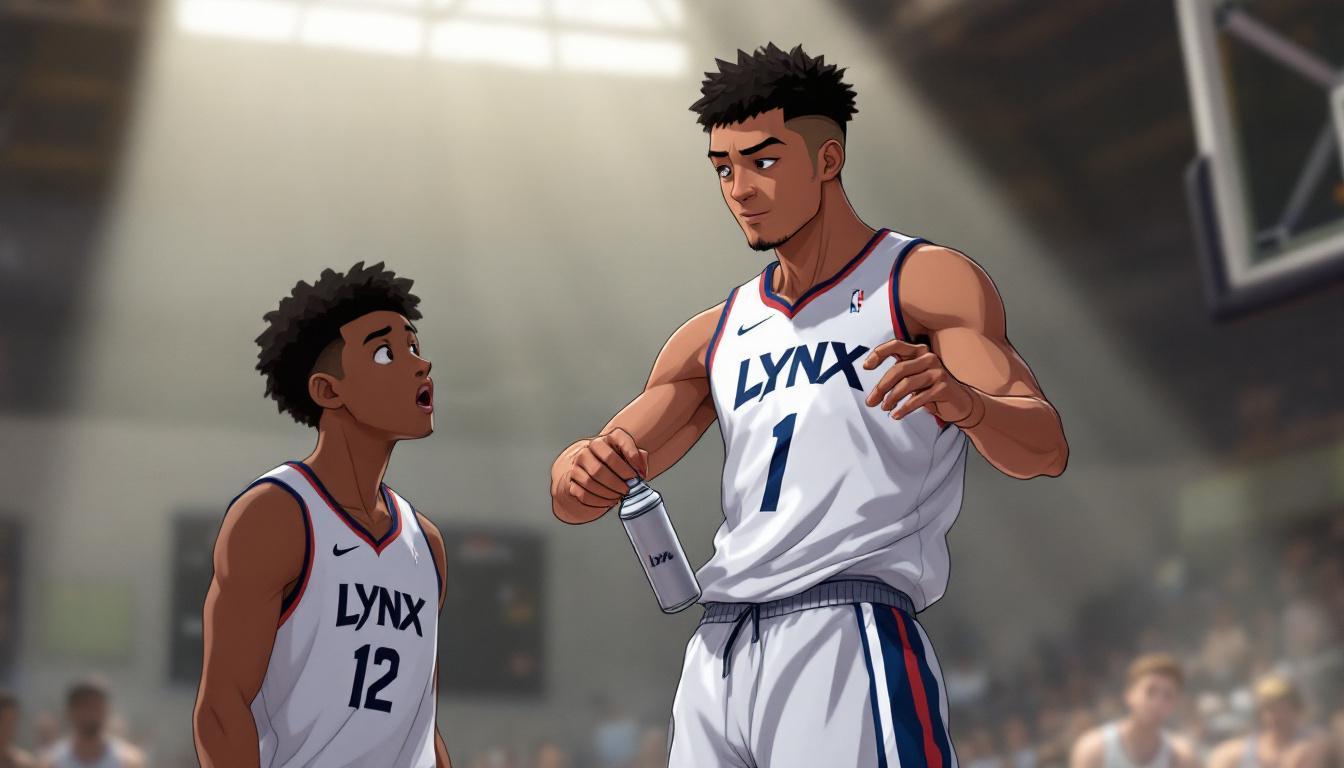A recent advertisement for Lynx's latest product has ignited a vigorous backlash among viewers, with many branding it as "disgusting" and "tasteless." The promotion, which showcases the French brand's new Lower Body Spray, features a young basketball player applying the spray to his groin area before executing an impressive jump to score. The scenario becomes particularly uncomfortable when he lands close to a teammate's face, prompting the teammate to take an exaggerated sniff in a moment that many found unsettling.
The creators of the ad likely intended to inject humour into the promotion; however, the result has left many viewers aghast. Social media platforms have been flooded with comments expressing outrage, with one user asking, “Who the f**k comes up with these adverts?” Another commented that they had never felt the urge to sniff a stranger while at the cinema, questioning the appropriateness of such a scene in public viewing contexts.
Critics have pointed out that the ad implies a presumption about men’s hygiene, suggesting that there is a need for a product specifically targeting “lower body” scents. This provocative messaging has not gone unnoticed, with one user quipping that the advert hints at an underlying belief that men are unable to maintain sufficient cleanliness.
This controversial advertisement is not Lynx's first venture into contentious territory. Previous campaigns have also ignited backlash, such as a 2020 advert celebrating the brand's 25th anniversary that featured a squirrel inappropriately engaged with a can of Lynx deodorant. That commercial alone drew over 150 complaints regarding its content, a figure that underscores a pattern of provocative advertising associated with the brand.
Historically, Lynx, owned by Unilever, has thrived on shock tactics and bold humour in its marketing strategies. In 2012, an ad styled as a news bulletin drew complaints due to exaggerated scenarios about male attraction that some viewed as sexually inappropriate. However, the Advertising Standards Authority ruled that the advertisement's fantastical nature made it clearly recognisable as marketing, allowing it to air without further sanction.
While some viewers laud such attempts at engaging a younger audience, they often skirt the line of good taste. A 2006 campaign featuring a man whose excessive sweating disrupted several activities drew complaints arguing it mocked those suffering from hyperhidrosis. However, the ASA found the portrayal exaggerated enough that it did not breach any advertising standards.
In a time when brands must tread carefully on matters of propriety and sensitivity, Lynx’s latest effort serves as a reminder of the polarising nature of advertising. As the uproar continues, it remains to be seen whether this latest ad will negatively impact Lynx's long-standing reputation or solidify its position in the male grooming market, particularly with its recent £13 million campaign rejuvenating the classic Lynx Africa brand, trying to appeal to Gen Z audiences with fresh concepts.
In an era where advertising increasingly seeks to engage through humour, the question remains: at what point does a clever campaign become a source of embarrassment for both brand and consumer?
Reference Map:
- Paragraph 1 – [1], [6]
- Paragraph 2 – [1], [4]
- Paragraph 3 – [2], [3], [5]
- Paragraph 4 – [2], [6]
- Paragraph 5 – [3], [4], [7]
Source: Noah Wire Services
